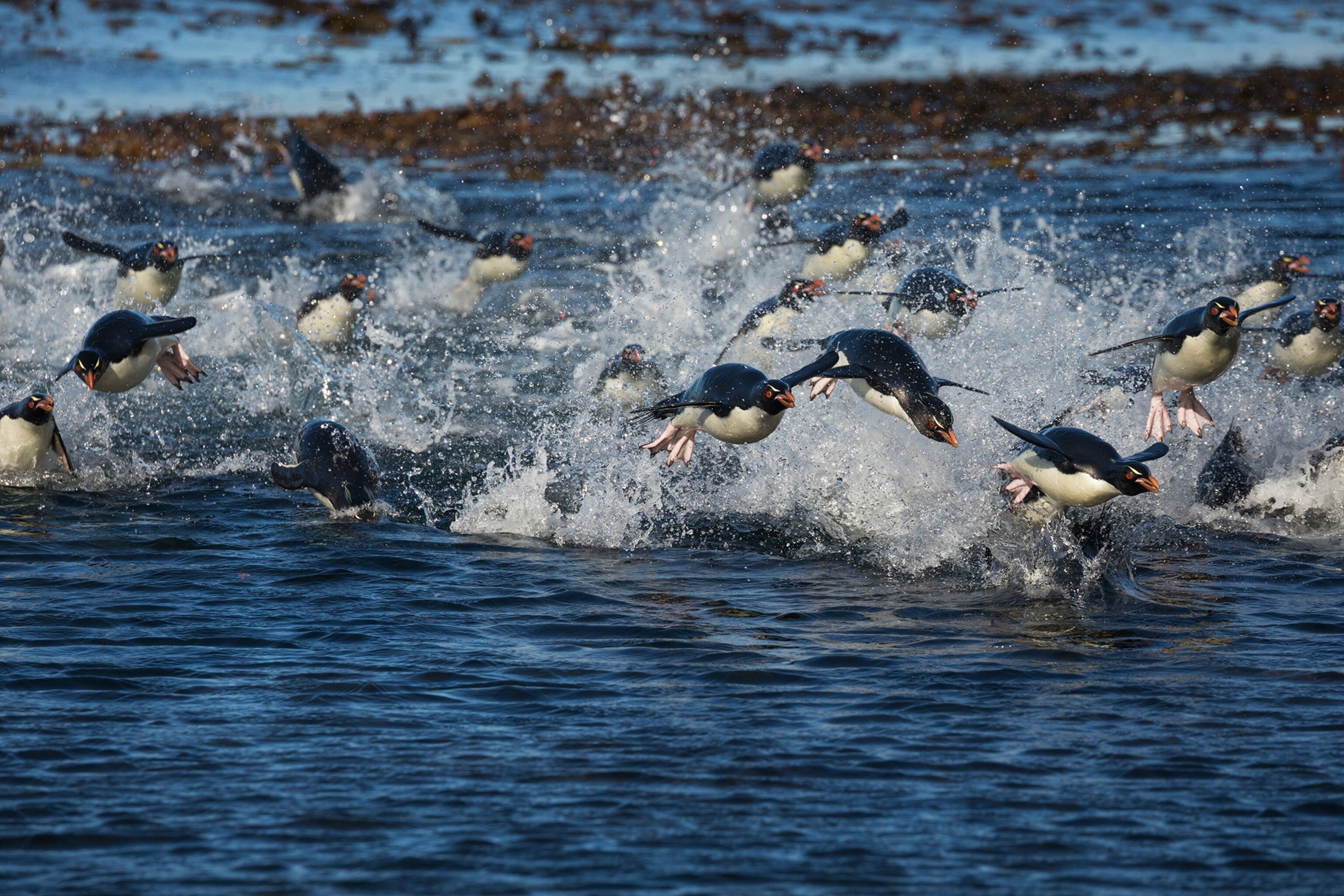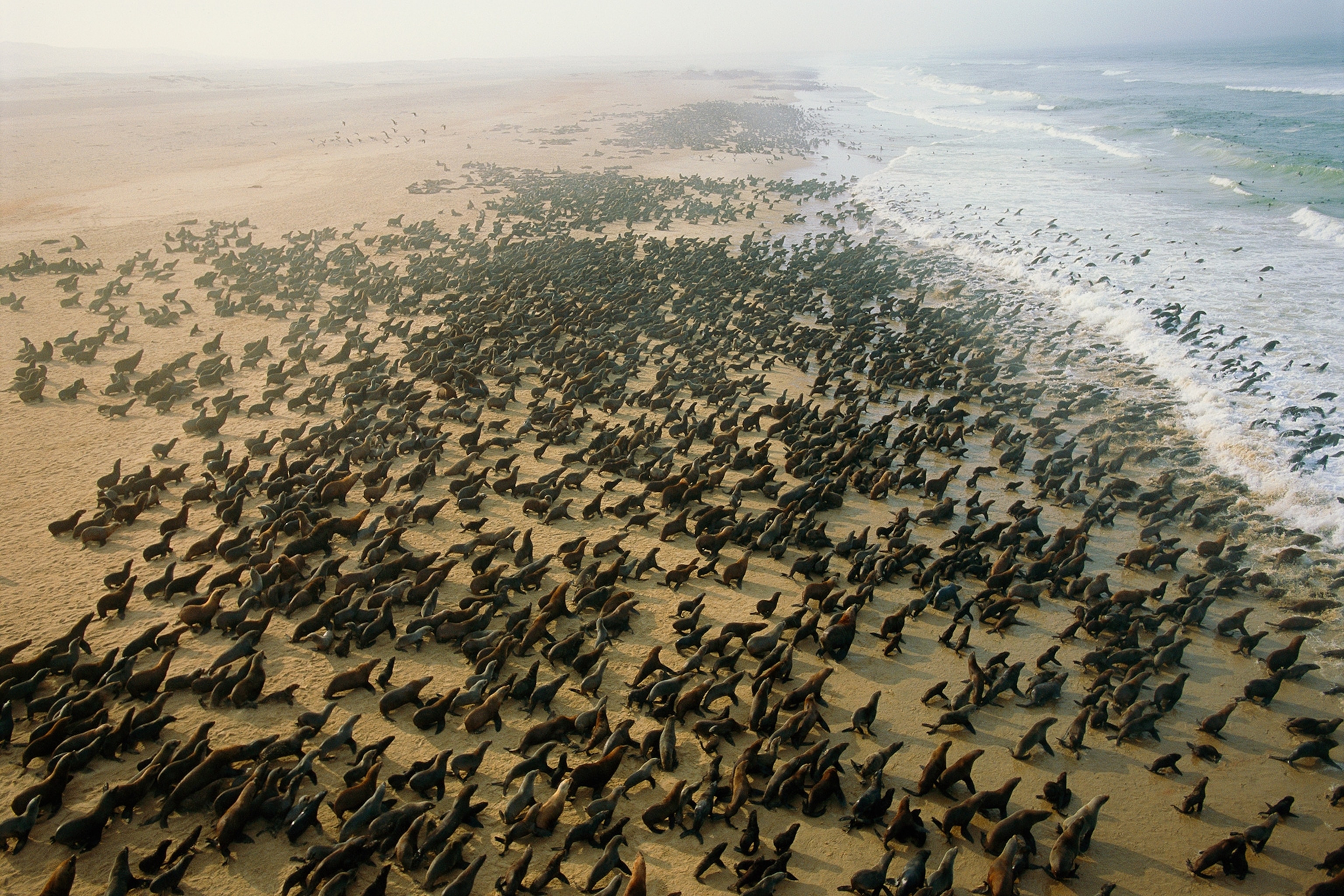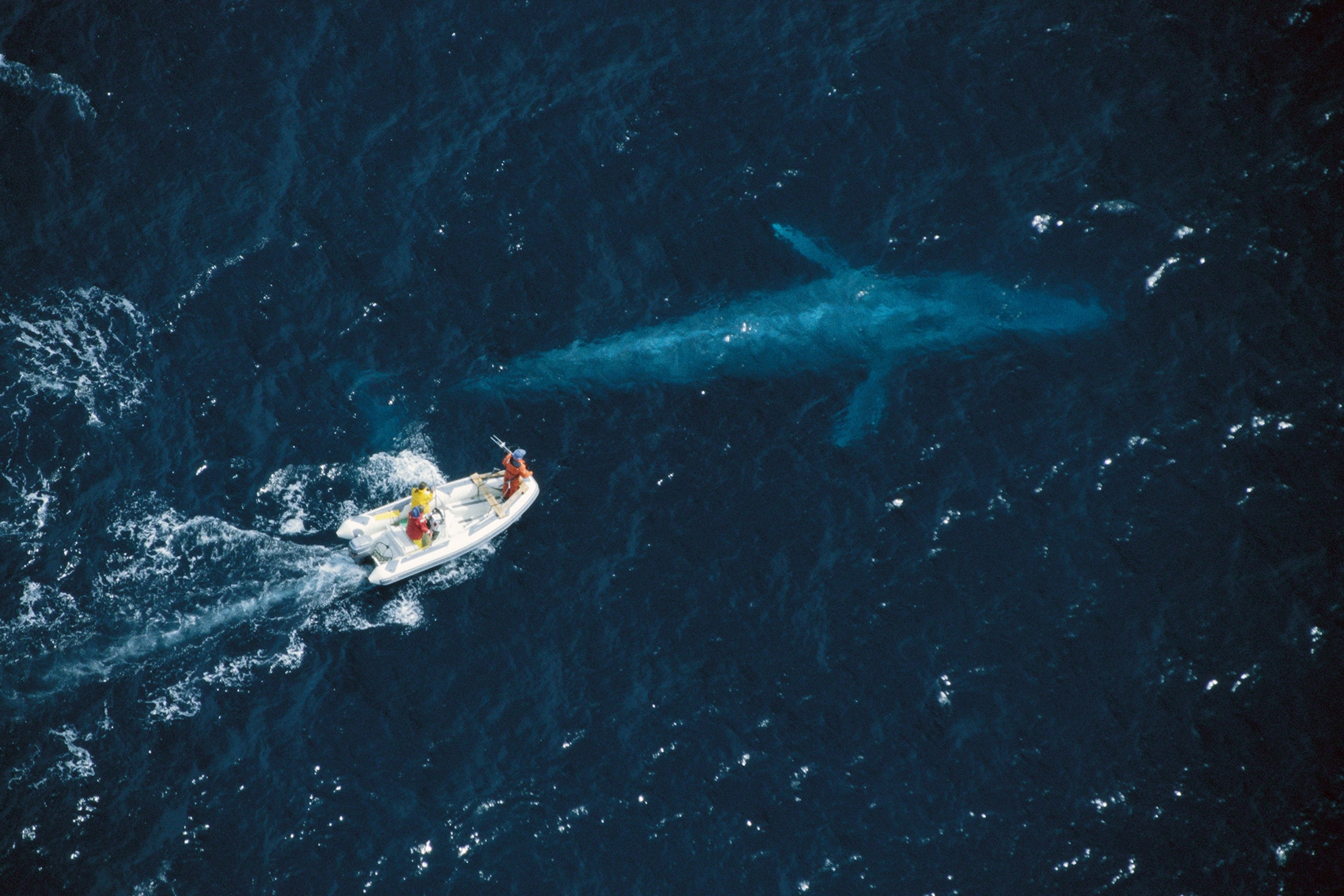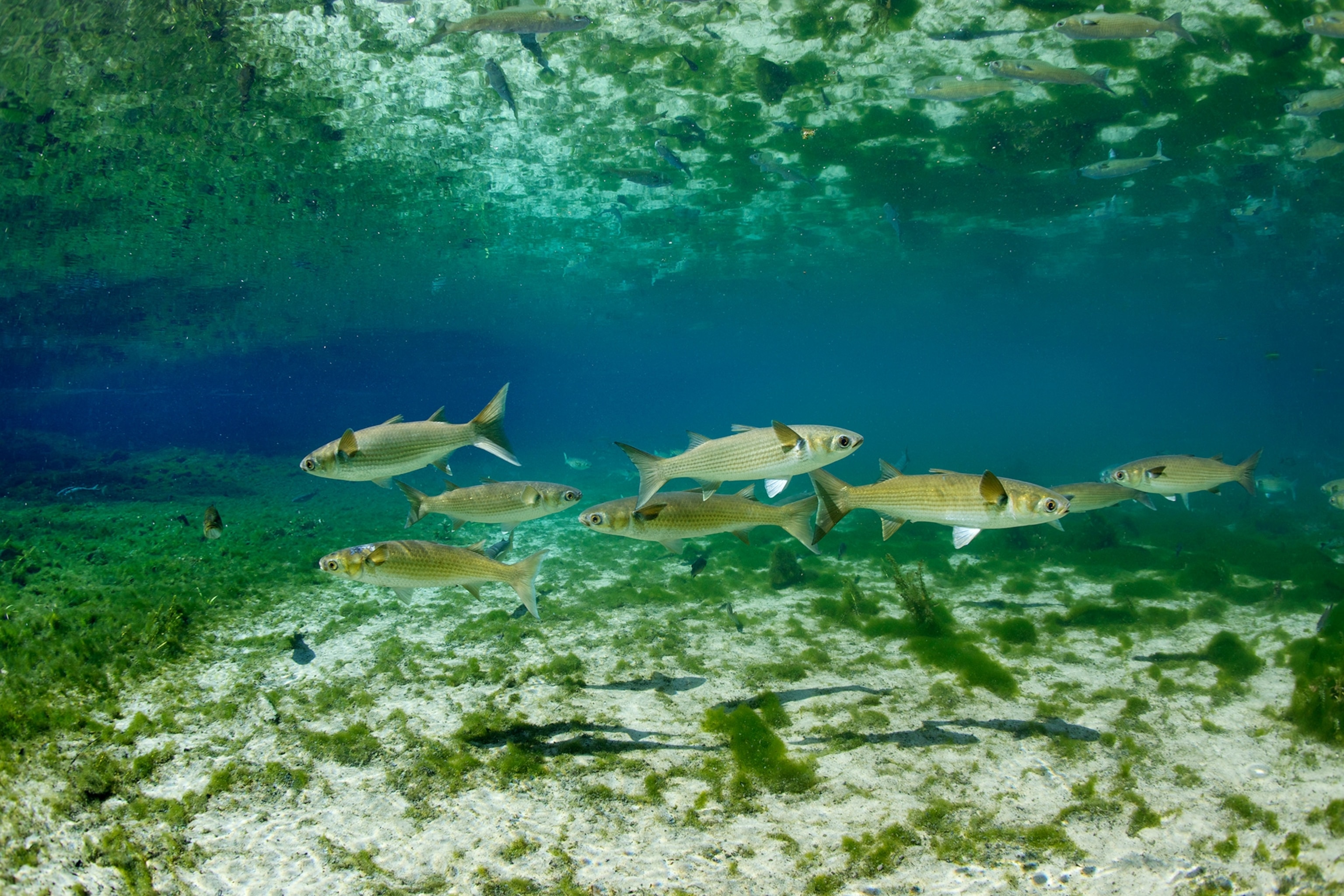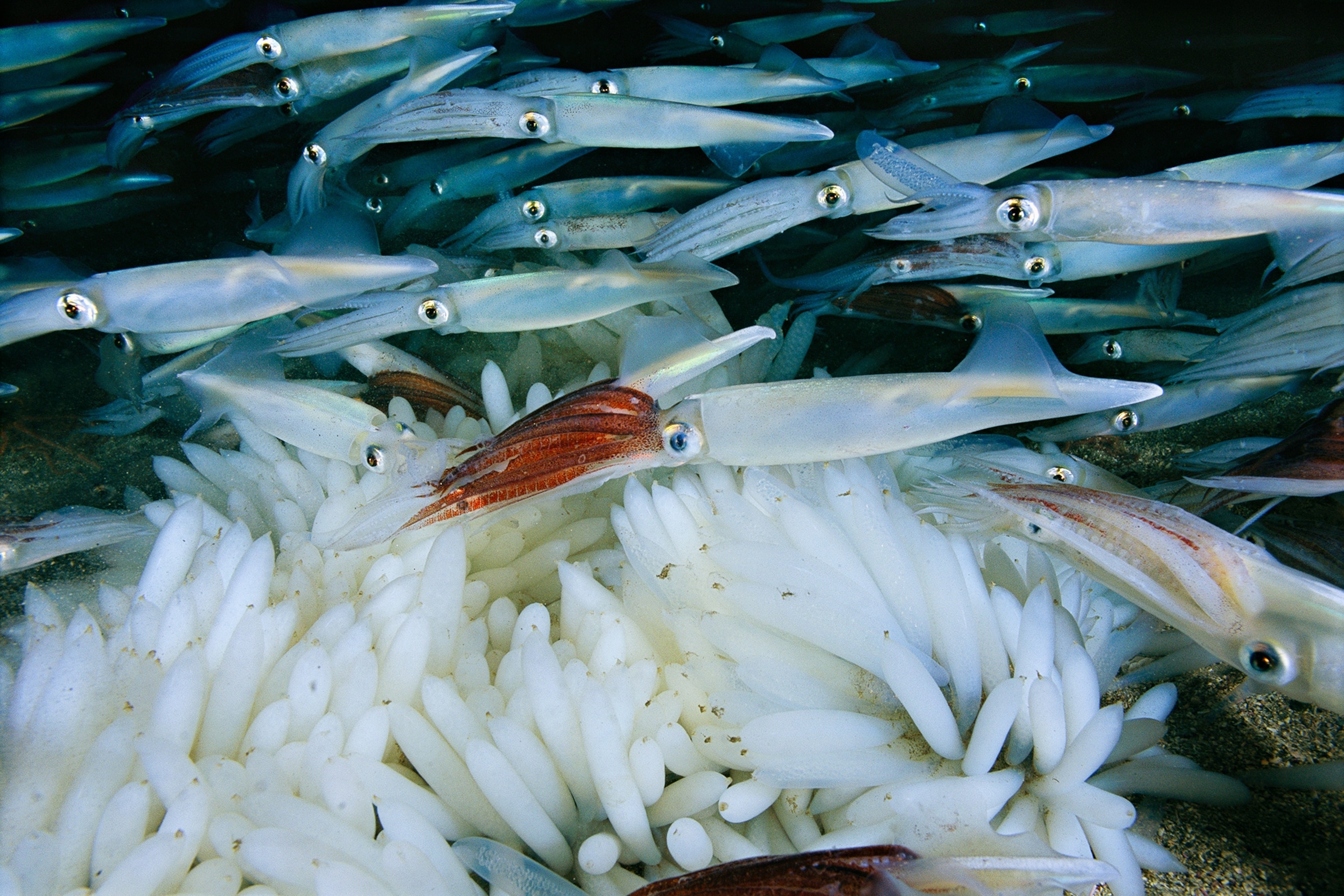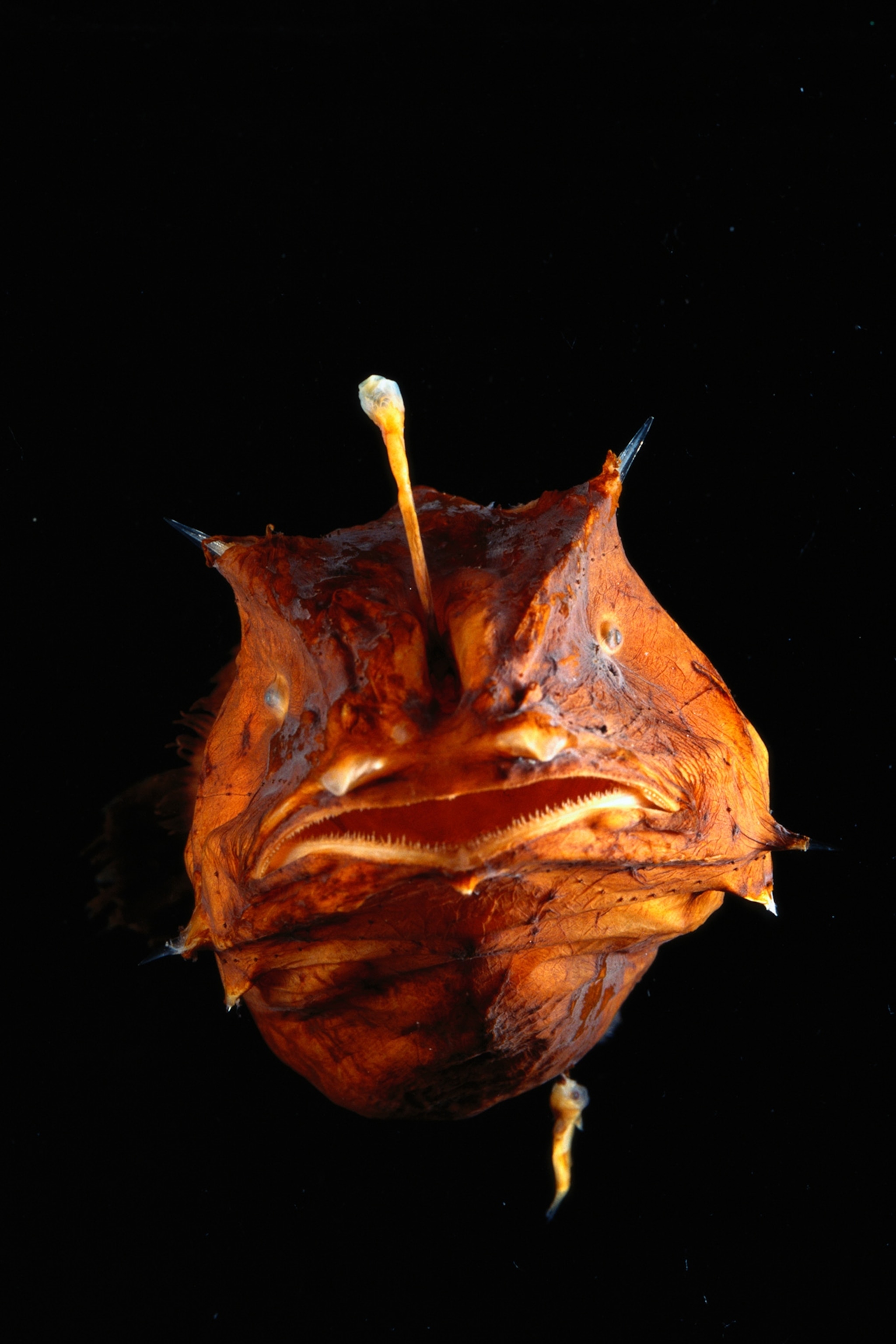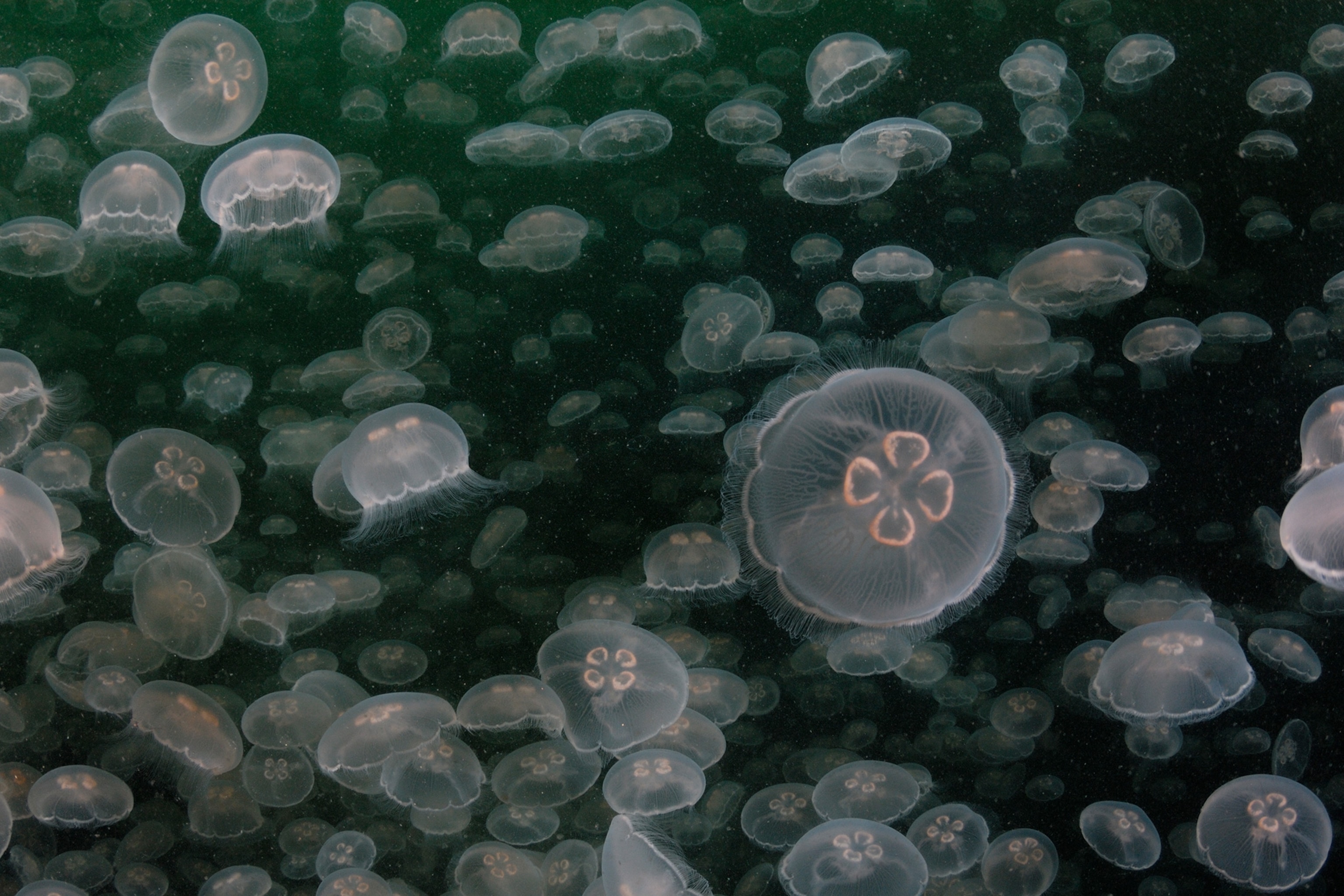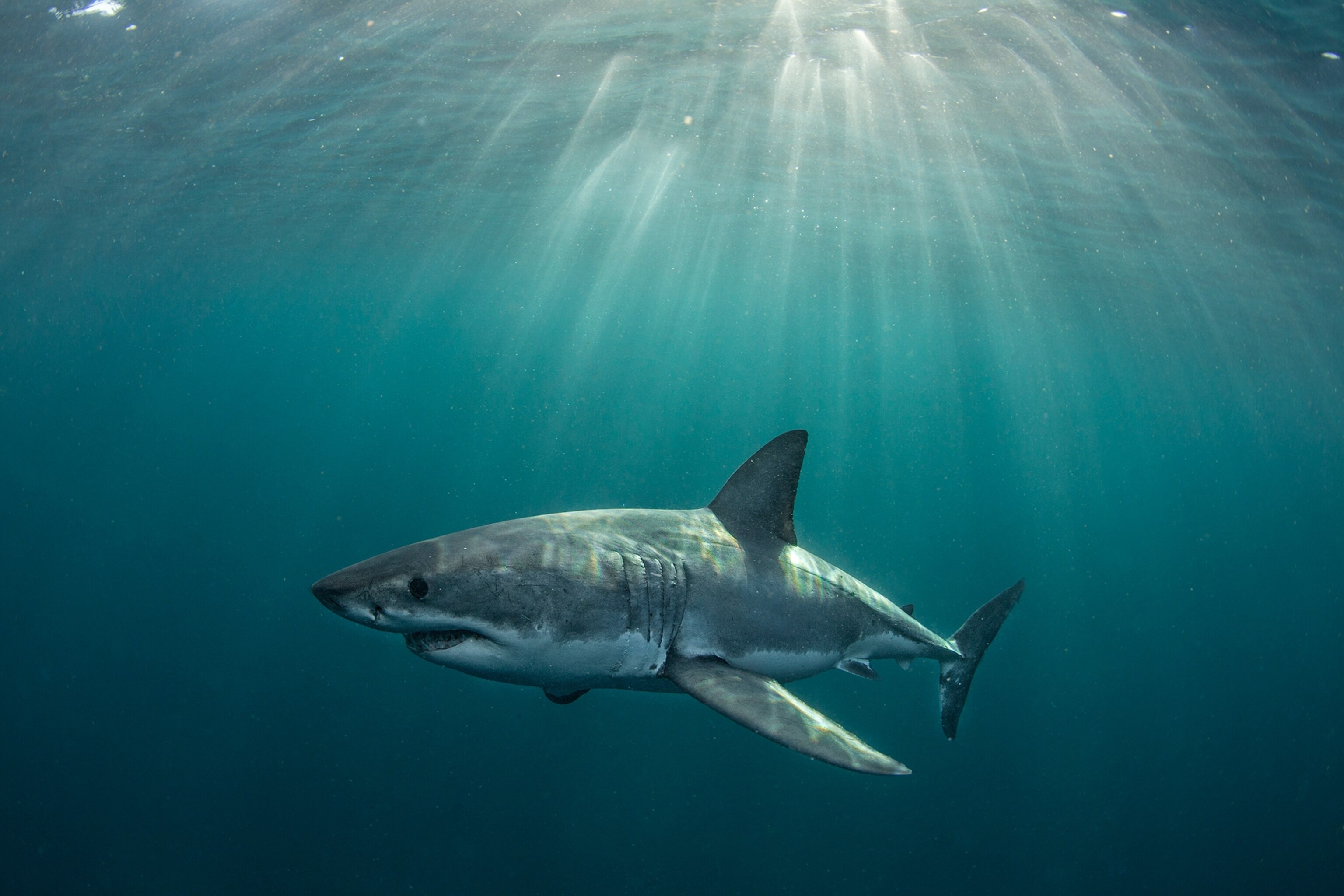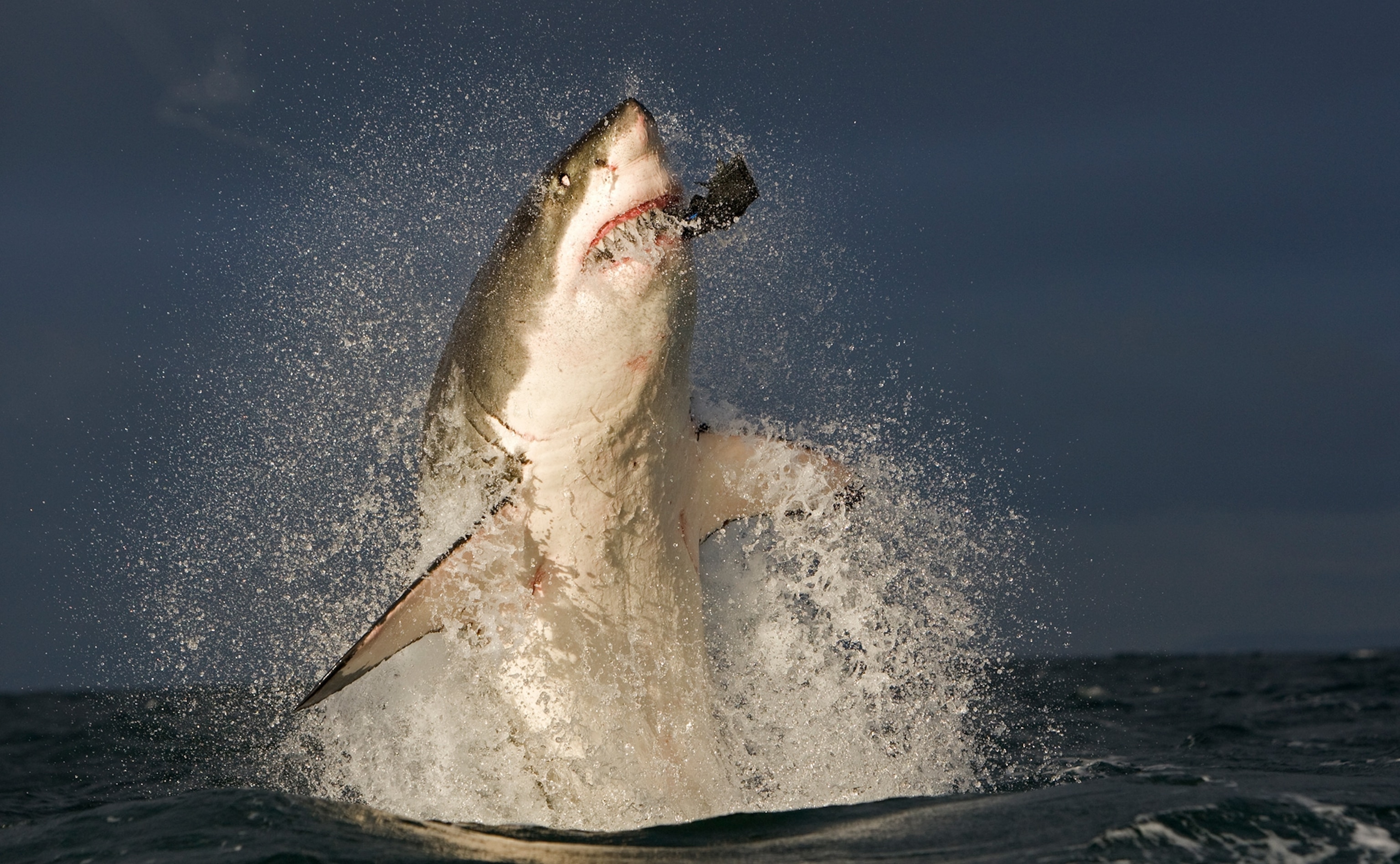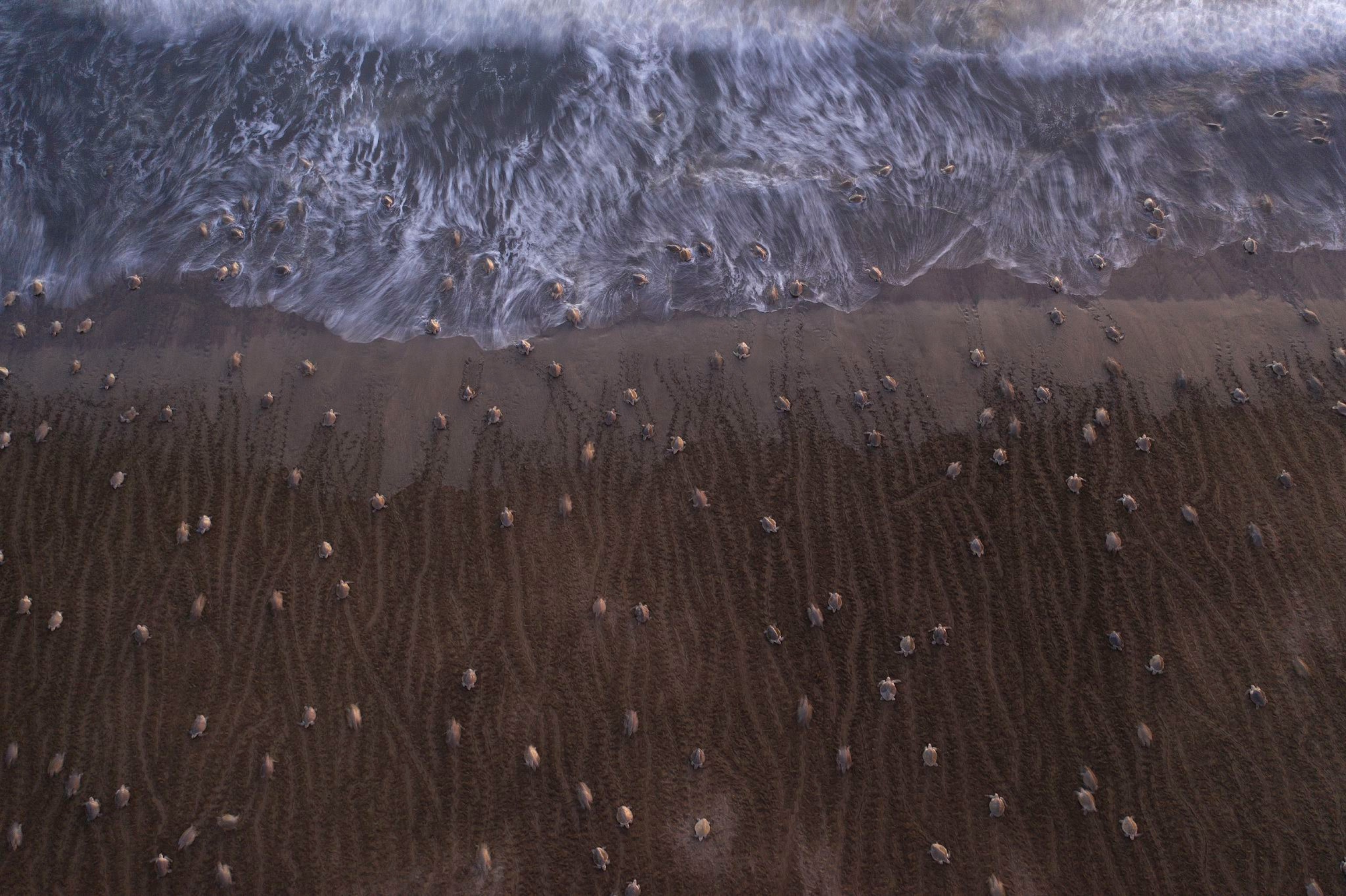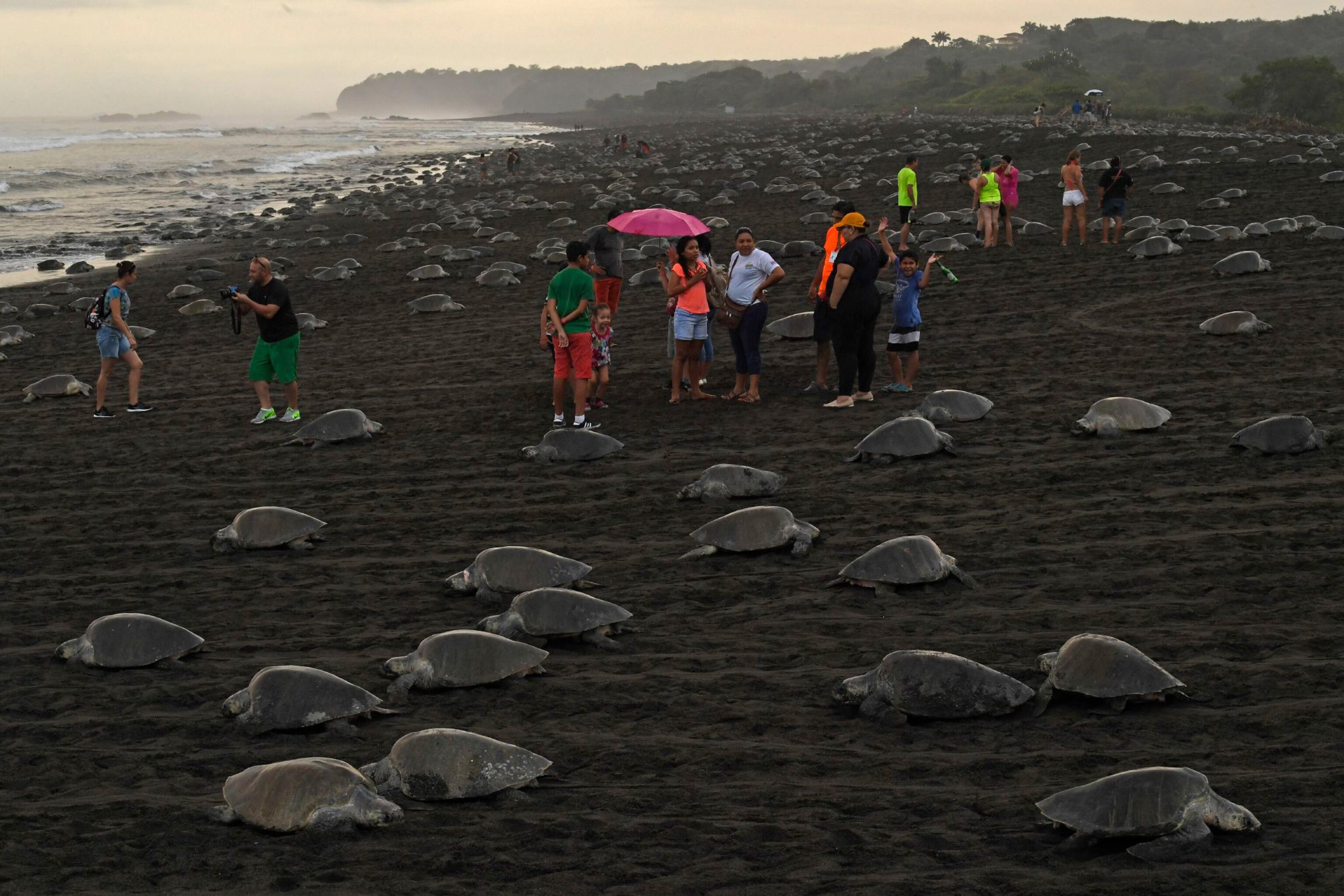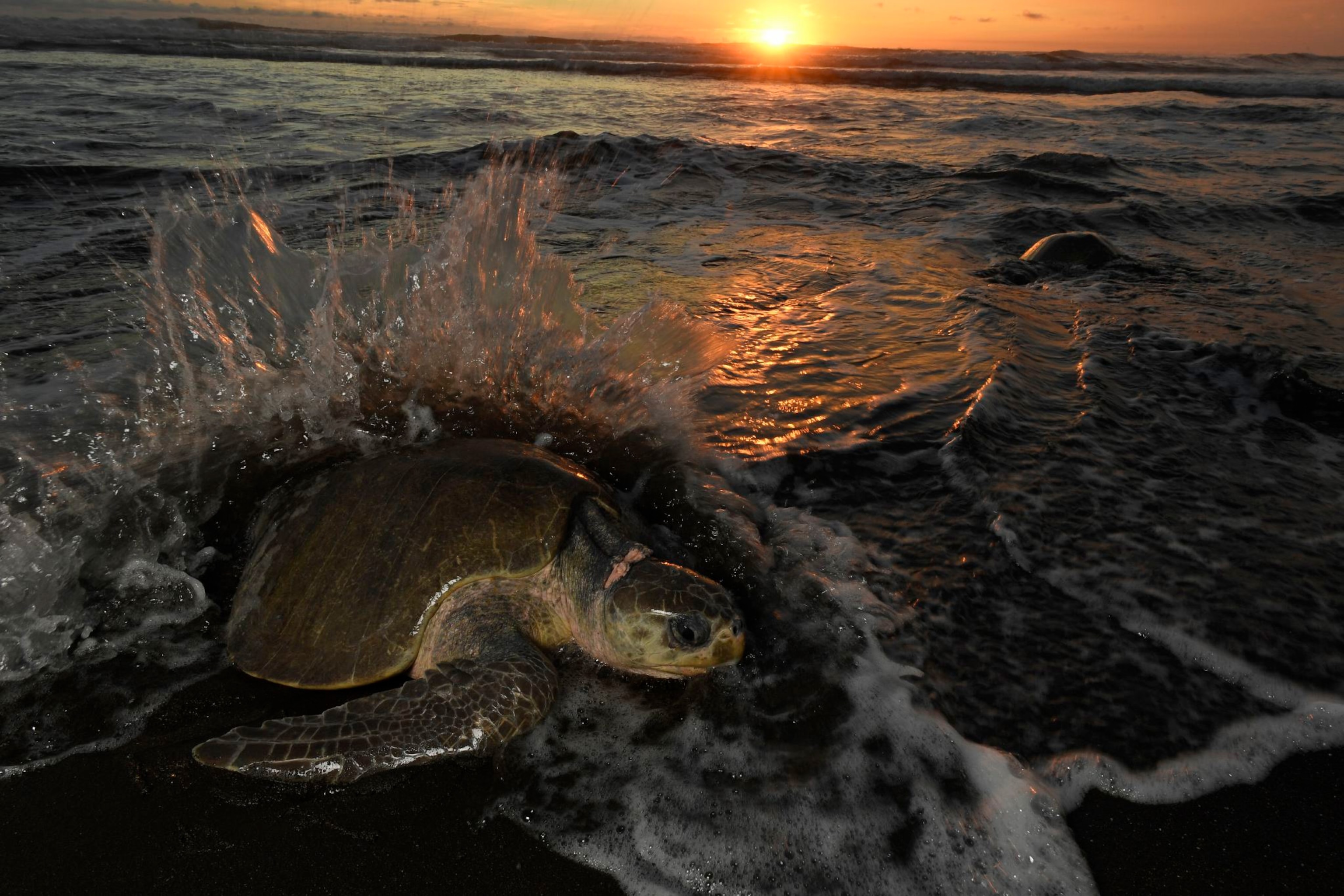
Why oysters close on the full moon—and more odd lunar effects on animals
New research shows that the moon has unexpected and fascinating impacts on marine animals, from oysters to worms to plankton.
A full moon is looming—and it will have a big impact on animals, especially those in the ocean.
Recent studies show that many types of animals have biological clocks finely tuned to the cycles of the moon, which drives fascinating and sometimes bizarre patterns of behavior.
Besides revealing hidden aspects of animal life, the research also has implications for better understanding the circadian clocks present in all animals, including humans. (Read more about how the moon affects life on Earth.)
(Full Moons Get Electrified by Earth's Magnetic "Tail")
The first circadian clocks evolved in the oceans, so studying them in marine animals can tell us a lot about how they evolved and how they work and interact with each other, explains Kim Last, a researcher at the Scottish Association for Marine Science.
Zooplankton
Take zooplankton. These tiny animals engage in the world’s largest migration, which takes place every night when they swim toward the surface to feed on algae. These mini-creatures are prey to a many larger animals that hunt by sight. So to avoid predation, zooplankton head for the depths at dawn.
“The predators follow them until they run out of light,” Last says. This requires an intricate circadian rhythm, usually regulated by the sun. However in the Arctic, where the winter sun cannot be seen for months on end, some zooplankton also have an internal clock that is set to the moon. Two, actually. (Find out more about circadian rhythms.)
When the winter moon is full over the Arctic, it stays above the horizon for a handful of days (depending on latitude), and during this time, zooplankton dive to take cover from predators. But while the moon is out, it also rises and sets—and the zooplankton respond, rising and diving over the course of this cycle, which takes 24 hours and 50 minutes.
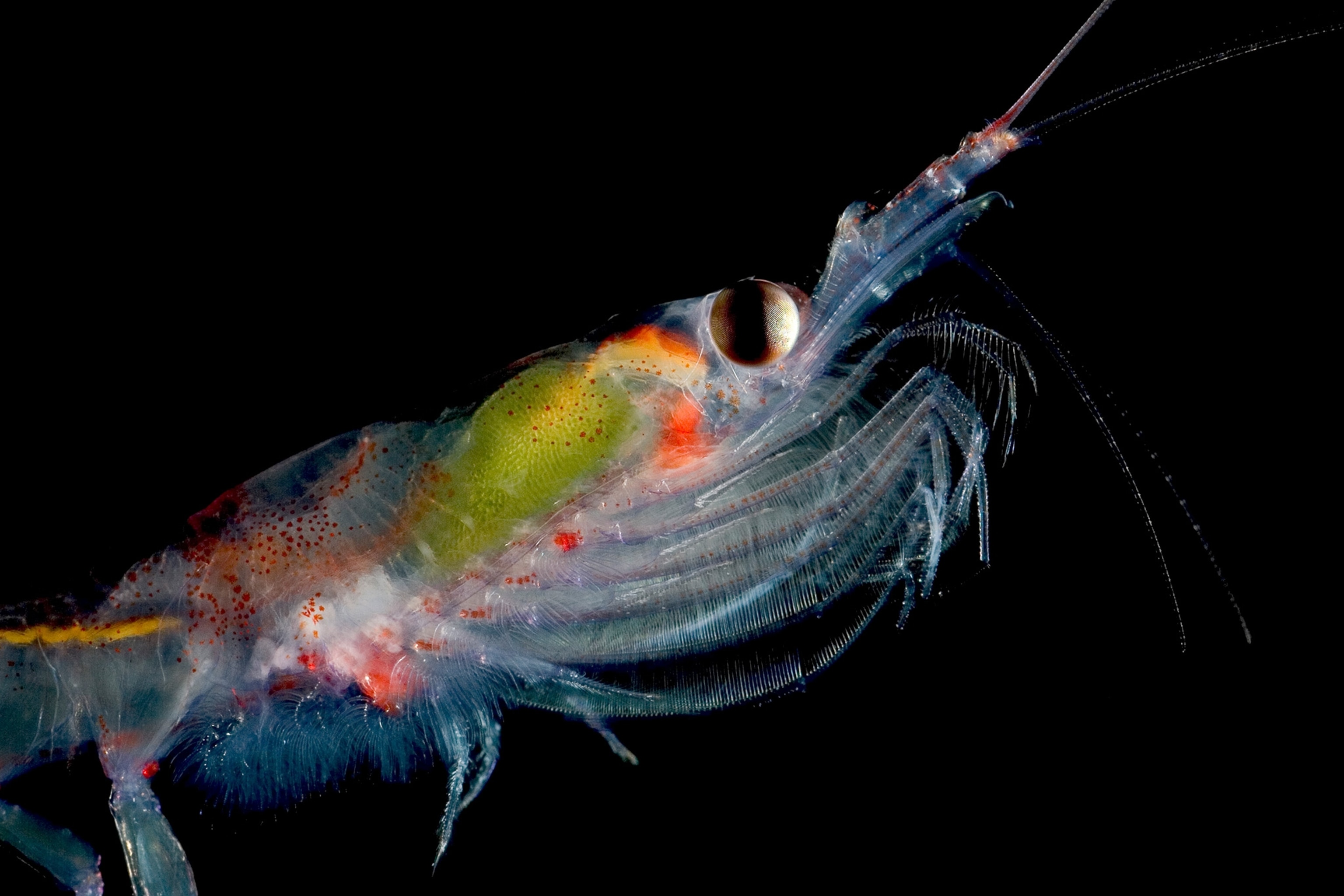
Oysters
Oysters, which open their shells to eat and spawn, also have a lunar rhythm, a new study shows.
In a recent experiment, French researchers carefully monitored how widely a dozen oysters opened their shells during a 3.5-month period. The team used a high-tech device that quantified the valve opening every two seconds, as described in a paper published in the journal Biology Letters.
They found that two types of oysters in Arcachon Bay in southwestern France were significantly more open during new moons and more closed when the moon was full. In addition, the oysters could tell the difference between the first quarter moon and the third quarter moon, and were significantly more open (by nearly 20 percent) at the latter.
It’s unknown why the oysters do this, though it could be due to more algae or other food being available during the new moon and as the year progresses, says study leader Damien Tran, a researcher at the University of Bordeaux.
The lunar cycle could influence food availability by its impact on the tides and thus the ocean’s currents. When the moon is full or new, it is directly in line with Earth and the sun, exerting a strong pull on the ocean and thus causing more pronounced tides, explains David Wilcockson, a marine biologist at Aberystwyth University in Wales who wasn’t part of the study.
On the other hand, when the moon is half-full, it is most out of alignment with Earth and the sun, producing so-called neap tides, which are the weakest of the tidal cycle.
The oysters’ rhythms could also have something to do with conditions favorable for mating. The moon, with its corresponding impact on tides and ocean currents, drives many types of marine organisms to mate at specific times of the month and year.
Palolo worms
For instance, oysters, corals, and many types of ocean animals breed by “broadcast spawning,” wherein they release sperm and eggs together in a precisely timed, orgiastic explosion.
Palolo worms, which live in warm ocean waters worldwide, engage in a rather extreme example of this.
South Pacific palolo worms, for example, spend most of the years feeding on organic matter on the seafloor or within coral. But in the austral spring, the rear of their bodies turn into sacks of egg or sperm.
During two days in October, these break off from the rest of the worm, and using an eyespot within, swim toward the surface—and the light of the moon. Exactly a month later, they repeat this feat in even great numbers, during the last quarter moon of November.
Speckled sea louse
Even more ordinary behaviors may be driven by the moon as well. Consider the speckled sea louse (Eurydice pulchra).
These little guys burrow in the sand in the intertidal zone, which is covered by water at high tide, and dry when it’s low. They have an internal lunar clock wherein they are active at 12.4-hour intervals, coinciding with the tides, explains Wilcockson.
Sea lice also have a monthly cycle, and are more active during the full and new moons, with their stronger currents, and more sedate during the weak neap tide, he says. But they also have a sun-linked daily cycle: They get dark during the day to protect themselves from solar rays, and are paler at night.
Lab experiments have shown these are separate. “We could abolish the daily cycle, and leave the tidal cycles intact,” Wilcockson says.
Sand hoppers
Another underappreciated creature that lives on British beaches: sand hoppers (Talitrus saltator).
“If you disturb them during the day, they’ll migrate back up the shore and bury themselves in the sand,” Wilcockson says. “If you disturb them at night, they’ll migrate down the shore to feed on stuff that’s washing up.”
Wilcockson explains that scientists hypothesized the crustaceans use their antennae to navigate via the sun, which has been shown to be the case in monarch butterflies. In a 2016 study published in Scientific Reports, Wilcockson and colleagues removed sand hoppers’ antennae and saw how they navigated in a nighttime and daytime environment.
Contrary to expectations, the animals could navigate just find during the day without antennae—presumably using their brains (and light through their eyes). But at night, without these appendages, they were totally lost. The experiment showed sand hoppers have independent clocks tied to each heavenly body, in different parts of their body.
“Our sand hopper has a lunar clock and a solar clock in the antennae and the brain, respectively,” he adds.


